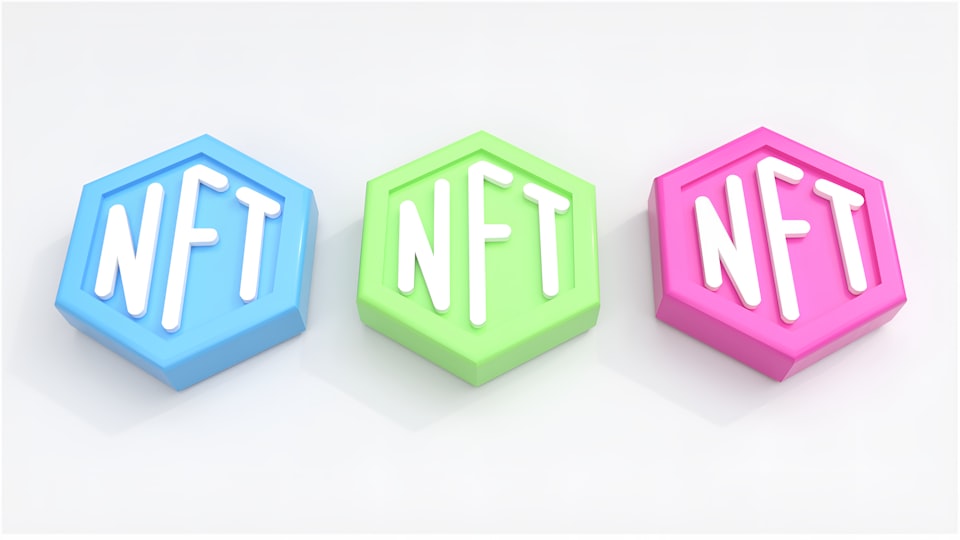How Blockchain is Revolutionizing Real Estate
Explore how blockchain technology is revolutionizing the real estate industry through tokenization, smart contracts, transparency, and efficient transactions.

The real estate industry, traditionally characterized by opaque processes, intermediaries, and inefficiencies, is undergoing a profound transformation driven by blockchain technology. This innovative distributed ledger system is revolutionizing the way properties are bought, sold, and managed, offering unprecedented transparency, security, and efficiency. From tokenization to smart contracts, blockchain is reshaping the real estate landscape, empowering buyers, sellers, and investors alike.
Tokenization: Unlocking Liquidity and Fractional Ownership
One of the most significant impacts of blockchain on real estate is the concept of tokenization. This process involves creating digital tokens that represent ownership of a physical asset, such as a property. These tokens can be traded on dedicated platforms, unlocking liquidity and enabling fractional ownership.
Traditionally, investing in real estate has been a capital-intensive endeavor, often requiring substantial upfront investments and limiting accessibility for many individuals. However, with tokenization, properties can be divided into smaller, more affordable units, allowing a broader range of investors to participate in the real estate market.
Companies like Polymath and Securitize have emerged as pioneers in real estate tokenization, providing platforms for issuers to create and manage digital securities compliant with regulatory frameworks.
For example, St. Regis Aspen Resort became one of the first major luxury properties to be tokenized, offering investors the opportunity to own a share of the prestigious resort through digital tokens.
Smart Contracts: Streamlining Transactions and Property Management
Smart contracts, self-executing agreements encoded on the blockchain, are revolutionizing the way real estate transactions and property management are conducted. These digital contracts eliminate the need for intermediaries, reducing costs and increasing efficiency.
In the context of real estate, smart contracts can automate various processes, such as property title transfers, rental agreements, and property management tasks. By encoding the terms and conditions of a contract on the blockchain, the execution of agreed-upon actions becomes automatic and transparent, minimizing the risk of disputes and reducing the need for third-party intervention.
Companies like Propy and Ubitquity are leveraging blockchain and smart contracts to streamline real estate transactions, enabling secure and efficient property transfers, escrow services, and record-keeping.
For instance, Propy facilitated the first-ever blockchain-based real estate transaction in the United States, enabling the seamless transfer of a property in Ukraine to a buyer based in California using smart contracts and cryptocurrency.
Enhancing Transparency and Trust in Real Estate
Transparency has long been a challenge in the real estate industry, with opaque processes and limited access to information hindering trust and efficient decision-making. Blockchain's immutable and decentralized nature offers a solution to these issues, fostering transparency and trust among all parties involved.
By recording transactions and property records on a shared, immutable ledger, blockchain eliminates the need for intermediaries and centralized authorities, reducing the potential for fraud and errors. This increased transparency empowers buyers, sellers, and investors with access to reliable and verifiable data, enabling informed decisions and promoting trust in the real estate market.
Companies like Deedcoin and SafeWire are leveraging blockchain to create secure and transparent platforms for property title management, escrow services, and real estate transactions.
For example, Deedcoin aims to revolutionize the way property ownership is recorded and transferred by creating a decentralized, blockchain-based platform for recording and tracking property deeds, eliminating the need for costly intermediaries and providing a transparent and immutable record of ownership.
Streamlining Real Estate Investment and Crowdfunding
Blockchain technology is also transforming the real estate investment and crowdfunding landscape, enabling more efficient and secure investment opportunities. By leveraging tokenization and smart contracts, real estate investments can be fractionalized, allowing investors to diversify their portfolios and access previously inaccessible markets.
Platforms like RealT and Brickx are pioneering blockchain-based real estate investment and crowdfunding solutions, providing investors with access to a wider range of opportunities and enabling greater liquidity.
For instance, RealT utilizes blockchain and tokenization to create a marketplace for real estate investment opportunities, enabling investors to purchase fractional ownership of properties through digital tokens.
Enhancing Property Management and Rent Collection
Beyond transactions and investments, blockchain is also poised to revolutionize property management and rent collection processes. Smart contracts can automate various aspects of property management, such as rent payments, security deposits, and maintenance requests, reducing administrative overhead and increasing efficiency.
Companies like RealBlocks are leveraging blockchain to streamline property management tasks and enable secure, transparent rent collection processes.
For example, RealBlocks offers a blockchain-based platform that automates rent payments, security deposits, and maintenance requests through smart contracts, providing a transparent and efficient solution for both landlords and tenants.
Watch this video from Bay Property Management Group for a closer look at how blockchain is transforming property management and rent collection processes.
Regulatory Challenges and Adoption
While the potential of blockchain in real estate is undeniable, the industry must navigate various regulatory challenges and adoption hurdles. Real estate is a heavily regulated sector, and the integration of blockchain technology must comply with existing laws and regulations surrounding property ownership, transactions, and investments.
Furthermore, the adoption of blockchain solutions in the real estate industry requires collaboration and buy-in from various stakeholders, including developers, real estate professionals, investors, and regulatory bodies. Education and awareness campaigns are crucial to address concerns and foster widespread adoption.
Despite these challenges, the benefits of blockchain in real estate, such as increased transparency, efficiency, and liquidity, are driving innovation and adoption across the industry. As regulatory frameworks evolve and stakeholders embrace the technology, blockchain is poised to disrupt and transform the real estate sector on a global scale.
Conclusion
The real estate industry is on the cusp of a technological revolution, and blockchain technology is at the forefront of this transformation. From tokenization and smart contracts to enhanced transparency and streamlined property management, blockchain is reshaping the way properties are bought, sold, and managed.
As the adoption of blockchain solutions continues to grow, the real estate industry will experience increased liquidity, efficiency, and trust, empowering buyers, sellers, and investors alike. While regulatory challenges remain, the potential benefits of blockchain in real estate are undeniable, driving innovation and progress within the industry.
Embrace the blockchain revolution and stay ahead of the curve by exploring the innovative solutions and platforms mentioned in this article. The future of real estate is decentralized, transparent, and efficient – powered by the transformative potential of blockchain technology.
The information provided in this article is for educational and informational purposes only and should not be construed as financial advice. Readers are advised to conduct their own research and consult with a qualified financial advisor before making any investment decisions.




